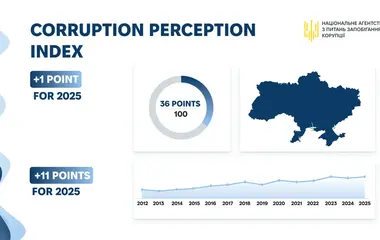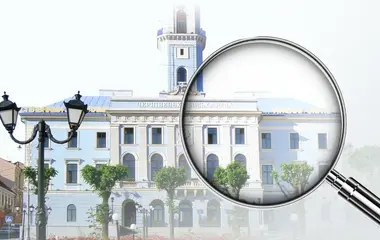In the first quarter of 2025, the National Agency on Corruption Prevention (NACP) monitored 883 draft legal acts (157 draft laws and 726 draft acts of the Cabinet of Ministers of Ukraine). In 40 of them, experts identified factors that could create corruption risks, so these documents were subject to a more detailed analysis - an anti-corruption expertise. NACP studied in detail, in particular, the legislation regulating the reboot of the customs, improvement of disciplinary procedures in the National Police and procurement of trucks for the Defence Forces.
In September 2024, the Verkhovna Rada of Ukraine adopted Law of Ukraine No. 3977-IX ‘On Amendments to the Customs Code of Ukraine on the Establishment of Peculiarities of Service in the Customs Authorities and Certification of Customs Officials’. Pursuant to this Law, the Ministry of Finance of Ukraine drafted bylaws detailing the procedural issues of the customs authorities' reboot and sent them to the NAPC to identify factors that may contribute to corruption offences. In their conclusions, the NACP experts provided recommendations for their elimination.
Thus, taking into account the NAPC's comments, the Ministry of Finance finalised the draft resolution of the Cabinet of Ministers ‘On approval of the Procedure for conducting psychophysiological examinations of civil service officials in the customs authorities and candidates for civil service positions in the customs authorities using a polygraph’. The document has been supplemented with a clear and exhaustive list of grounds for initiating a psychophysiological examination in order to minimise the risks of abuse and enhance the transparency of decision-making in the customs authorities. The resolution has already been approved.
In the draft CMU resolution ‘Some Issues of Integrity Testing and Lifestyle Monitoring of Customs Officials ’, NACP drew attention to the need to eliminate a number of corruption-prone factors, including legal conflicts, risks of excessive discretion in the formation of commissions that will conduct relevant inspections, and unclear regulation of the powers and responsibilities of the commissioners for conducting inspections.
NACP also provided recommendations on the draft CMU resolution ‘On Approval of the Procedure for Organising and Conducting Attestation, Criteria and Methodology for Assessing the Integrity and Professional Competence of Customs Officials during Attestation’. The procedure needs to eliminate the violation of the principle of legal certainty, which may affect the objectivity and impartiality of the certification of customs officials and creates conditions for decision-making in conditions of conflict of interest. The Ministry of Finance is currently finalising these two documents.
The NACP has identified a number of provisions that could create corruption risks in the draft Law ‘On Amendments to the Disciplinary Statute of the National Police of Ukraine on Improving the Procedure for Conducting Internal Investigations and Ensuring the Independence of Disciplinary Commissions’. The document does not define clear criteria for the selection of civil society representatives to the disciplinary commissions, but states that they may be persons of ‘high moral character’ and ‘public authority’. However, the absence of specific requirements for their profession or field of activity opens up space for subjective selection and abuse.
The draft law also establishes excessive discretionary powers for the police leadership. In particular, the authorised supervisor can independently change the decision of the disciplinary commission or cancel it completely without having clearly defined grounds for doing so. This creates a risk of a selective approach to imposing disciplinary sanctions. The draft law also contains a risk of incomplete regulation of conflicts of interest.
NACP recommended to clearly define the areas in which civil society representatives can be involved in disciplinary commissions, to align the draft law with the provisions of the Law on Prevention of Corruption on conflicts of interest, to limit the discretionary powers of the authorised manager and to establish transparent grounds for decision-making. The National Police is finalising this draft law.
In addition, NACP conducted an anti-corruption assessment of the draft resolution of the Cabinet of Ministers of Ukraine ‘On State Support for Domestic Manufacturers of Trucks and Automotive Base Chassis for Weapons and Equipment’. The document identified provisions that may facilitate corruption offences, namely
- unregulated procurement and public contracting procedures for the procurement of trucks and automotive base chassis for weapons and equipment manufactured by domestic defence industry enterprises, if the degree of localisation of production of such goods being the subject of procurement is less than 70 per cent, or imported;
- the absence of a procedure (procedure, terms) for confirming the degree of localisation of production of goods, which is one of the main criteria for concluding such contracts.
The Ministry of Defence has fully taken into account the NACP's recommendations to introduce a transparent procurement procedure.
In total, since the beginning of the year, the National Agency has provided 100 recommendations to lawmakers to eliminate corruption-prone factors, and the vast majority of them have been taken into account.









